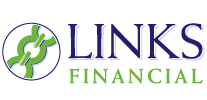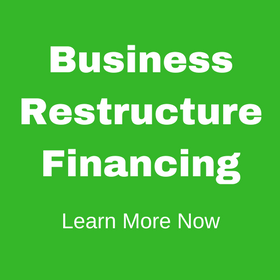Owning commercial real estate can be rewarding, but it doesn’t take long to realize that the world of commercial property finance can be confusing. The following information will help you find the money to fund your investment.
What Kind of Commercial Loan Is Available?
Buyers typically obtain the money to acquire, build or develop commercial properties through a commercial real estate mortgage. Banks, insurance companies, the U.S. Small Business Administration, private investors and pension funds all make these loans. Loans for commercial real estate financing come in a variety of forms:
- Commercial mortgage: a loan secured by commercial property such as a retail outlet, apartment complex or office building.
- Property development loan: a short-term loan for large-scale new building or major renovation projects.
- Bridge loan: a short-term loan used to bridge the gap until a long-term loan can be secured.
- Portfolio loans: a long-term loan available to investors with multiple properties. These multiple properties are often are rolled into one loan.
The length of time it takes to secure a loan depends on a number of factors: the project type, how well-conceived the plan is, the project’s sponsorship and general market conditions. The timing for a loan approval is also highly dependent upon your lender. Financial institutions can take up to eight weeks to approve a loan because of the commercial real estate loan requirements they have to meet. Because they don’t have to comply with as much red tape as financial institutions, private investors can approve commercial real estate financing in as little as five days.
How Long Are Commercial Real Estate Loans?
The length of commercial real estate finance ranges from three months to 40 years, although the average is five to seven years. To more closely match the project’s life, the amortization period is often much longer. For example, a loan may be extended for seven years and have an amortization period of 30 years. That structure would include you making regular monthly payments of principal and interest for seven years, with the payment amount based on the principal being repaid over thirty years. At the end of the seven years, you make one final balloon payment of the principal balance due. Private investor loans typically have a term of 24 months or less with a balloon payment. In either case, if you don’t have the funds to make the balloon payment, you will need to refinance your loan with your current lender or take out another loan elsewhere. Short term loans from private lenders often allow you the time to stabilize a project’s income stream so that you can then refinance with a more traditional lender.
What Are Commercial Loan Rates?
Interest rates for commercial real estate financing vary depending upon the type of project, the amount borrowed, length of repayment, sponsor support, volatility of the market and the availability of the funding source. Interest rates on loans from private investors are higher than conventional loans. A low credit score raises the rate; a larger down payment reduces the rate. Typically, the longer it takes to repay a loan, the higher the interest rate is. When arranging commercial real estate financing in today’s market, you can expect the following interest rate ranges:
- Commercial banks/credit unions:35 percent to 7 percent
- SBA 504:5 percent to 7 percent
- Life insurance companies:25 percent to 6 percent
- Private investors: 8 percent to 18 percent
In addition to the interest rate charged commercial real estate loans often include many other fees and costs: origination, appraisals, survey, title insurance, and documentary stamp taxes, to name a few, all of which add to the cost of the loan. Some lenders also charge a prepayment fee for paying off the loan early. Additionally they may also require you to submit periodic financial statements or meet certain financial criteria.
Will I Qualify for A Commercial Loan?
The type of property you want to acquire plays a role in getting approved for commercial property finance, but no matter which lender you approach, the lender expects to be repaid. Each lender has its own commercial real estate loan requirements, but when evaluating a commercial real estate mortgage, lenders consider these factors:
- Down payment (at least 10 percent)
- Collateral (loan-to-value ratio in the 65 percent to 80 percent range for conventional lenders, 50 to 75 percent for private lenders, up to 90 percent for government backed loans)
- Creditworthiness of the buyer (credit score of at least 680) and personal liquidity (at least 15% of the loan amount)
- Ability to repay (debt-service coverage ratio of at least 1.25)
You will need to be prepared to provide income tax returns and financial statements for the past three to five years. For more tips and expert advice, solicit the help of a financial partner like Links Financial.
Links Financial can help you find the best commercial real estate financing option for your project and work directly with lenders to get the best deal. Contact us today to learn more.







